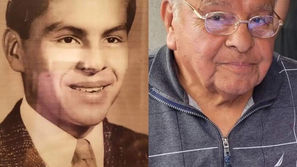Editor's Corner: Madera’s water can run out, too
- Chuck Doud
- Jul 18, 2017
- 3 min read
A friend of mine, an engineer who for several years ran the water utility in the Kern County city of Ridgecrest, used to joke that his customers were “watering their lawns with bottled water, and we’re just about to run out of it.”
That’s pretty much the case in Madera, as well, if you think about it.
Ridgecrest is the service city for the China Lake Naval Air Weapons Station and also a service city for Death Valley National Park. It’s very much a desert town.
But it got its start as a garden spot when a family of dairy farmers moved there at the turn of the last century, drilled a well, and found they could grow alfalfa that was some of the best on earth, using seemingly endless supplies of sweet, pure water that even to this day doesn’t have to be treated.
It never dawned on that family, the Crums, that the water which was so abundant and sweet would some day run out.
The town they founded, known as Crumville at the time, eventually became Ridgecrest, incorporated in 1963.
Ridgecrest, which today has about 28,000 people, doesn’t suck water out of the ground nearly so much as the Crums’ alfalfa farms did, but the water table drops every year. The alfalfa farms long ago dried up because the water table had dropped so far the Crums couldn’t afford the fuel to run the pumps to get it out of the ground.
Ridgecrest is lucky to get five inches of rain a year. They have to go down 1,000 feet and more to get potable water.
Eventually, said my engineer friend, the city is going to run out of water and will have to import whatever it uses from somewhere else, at great expense, maybe from the Los Angeles aquaduct. Does that sound familiar?
It should.
Madera finds itself in a similar situation, even though our annual rainfall is a bit more than five inches.
We use more water every year than we get from rain or snowmelt.
During the drought, in an effort to conserve water and meet state requirements, the City Council two years ago mandated that Maderans could only water two days a week.
Madera Public Works Director David Randall told the council on July 5 that even though the drought of the last five years had been broken by a welcome wet autumn and winter, the city’s water resources still had not been replenished, and that the city should keep conserving, and stay on a two-day-a-week schedule.
However, the council has been getting pressure from its constituents for three waterings a week, and will be voting on an ordinance to make that change at its July 19 meeting.
They are tempted to do that by the fact that Fresno and Clovis have gone to three-day-a-week schedules.
However, Madera’s water resources aren’t the same as Fresno’s and Clovis’s. Our water table goes down every day. We are surrounded by agricultural operations that have first claim on the underground basin from which we draw our water.
And those farms are the base of our economy.
Those citizens who are pressuring the council to increase their yard watering by 50 percent ought to think a little harder about what they’re asking for, remembering what we’ve been through with the drought just past.


























Comments